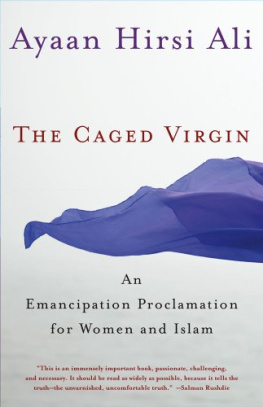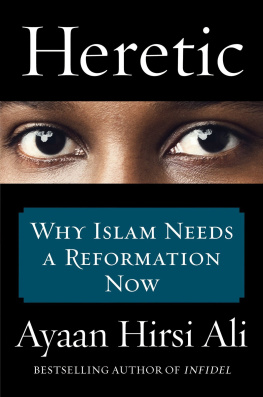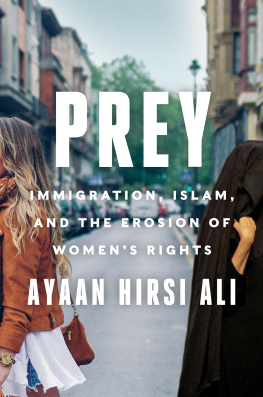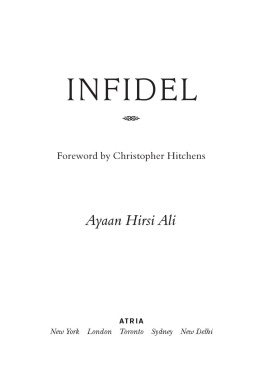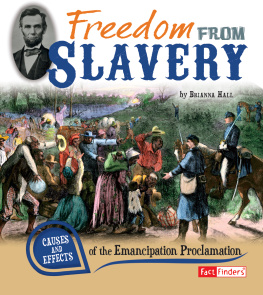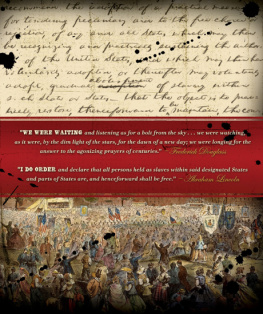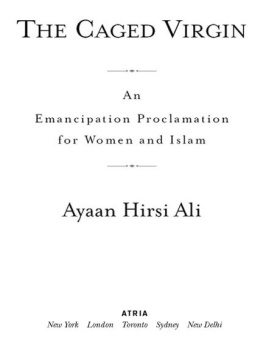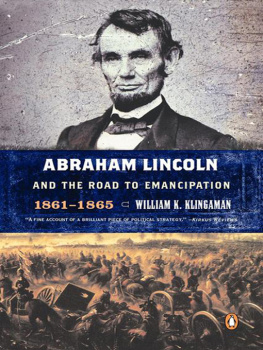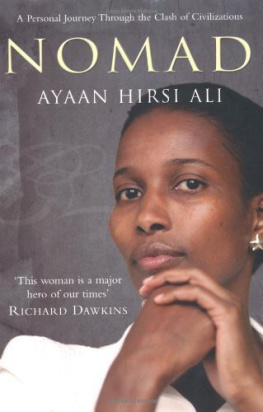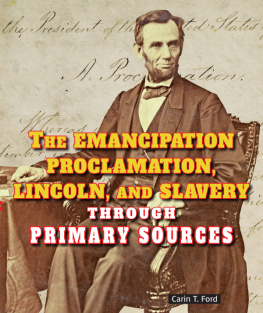Ayaan Hirsi Ali - The caged virgin: an emancipation proclamation for women and Islam
Here you can read online Ayaan Hirsi Ali - The caged virgin: an emancipation proclamation for women and Islam full text of the book (entire story) in english for free. Download pdf and epub, get meaning, cover and reviews about this ebook. year: 2006, publisher: Simon and Schuster, genre: Religion. Description of the work, (preface) as well as reviews are available. Best literature library LitArk.com created for fans of good reading and offers a wide selection of genres:
Romance novel
Science fiction
Adventure
Detective
Science
History
Home and family
Prose
Art
Politics
Computer
Non-fiction
Religion
Business
Children
Humor
Choose a favorite category and find really read worthwhile books. Enjoy immersion in the world of imagination, feel the emotions of the characters or learn something new for yourself, make an fascinating discovery.
- Book:The caged virgin: an emancipation proclamation for women and Islam
- Author:
- Publisher:Simon and Schuster
- Genre:
- Year:2006
- Rating:4 / 5
- Favourites:Add to favourites
- Your mark:
- 80
- 1
- 2
- 3
- 4
- 5
The caged virgin: an emancipation proclamation for women and Islam: summary, description and annotation
We offer to read an annotation, description, summary or preface (depends on what the author of the book "The caged virgin: an emancipation proclamation for women and Islam" wrote himself). If you haven't found the necessary information about the book — write in the comments, we will try to find it.
The caged virgin: an emancipation proclamation for women and Islam — read online for free the complete book (whole text) full work
Below is the text of the book, divided by pages. System saving the place of the last page read, allows you to conveniently read the book "The caged virgin: an emancipation proclamation for women and Islam" online for free, without having to search again every time where you left off. Put a bookmark, and you can go to the page where you finished reading at any time.
Font size:
Interval:
Bookmark:


FREE PRESS
A Division of Simon & Schuster, Inc.
1230 Avenue of the Americas
New York, NY 10020
Originally published in The Netherlands in 2004 as De Maagdenkooi by Uitgeverij Augustus (Amstel Publishers, b.v.)
Published by arrangement with Ayaan Hirsi Ali and Uitgeverij Augustus, part of Amstel Publishers, b.v.
All rights reserved, including the right of reproduction in whole or in part in any form.
FREE PRESS and colophon are trademarks of Simon & Schuster, Inc.
Designed by Joseph Rutt
De Zoontjesfabriek, De Maagdenkooi, Submission, Vreemde Situaties copyright 2002, 2004 by Ayaan Hirsi Ali and Augustus Publishers. Ik Wil dat Hier en Nu Gebeurt copyright 2002 by Colet Van der Ven. Politiek Schadelijk voor mijn Ideaal copyright 2003 by Arjan Visser. English translation copyright 2006 by Jane Brown
With grateful acknowledgment to the Foundation for the Production and Translation of Dutch Literature for their kind assistance
Library of Congress Cataloging-in-Publication Data is available.
ISBN-13: 978-0-7432-9990-9
ISBN-10: 0-7432-9990-6
Visit us on the World Wide Web:
http://www.SimonSays.com
To the spirit of liberty
the Islamic Curtain
T he attacks on the United States of September 11, 2001, prompted the West to launch a massive appeal to Muslims around the world to reflect on their religion and culture. American President George W. Bush, British Prime Minister Tony Blair, and numerous other leaders in the West asked Muslim organizations in their countries to distance themselves from Islam as preached by these nineteen terrorists. This plea was met with indignation from Muslims who thought it was inappropriate to hold them responsible for the criminal conduct of nineteen young men. Yet the fact that the people who committed the attacks on September 11 were Muslims, and the fact that before this date Muslims in many parts of the world were already harboring feelings of immense resentment toward the United States in particular, have urged me to investigate whether the roots of evil can be traced to the faith I grew up with: was the aggression, the hatred inherent in Islam itself?
My parents brought me up to be a Muslima good Muslim. Islam dominated the lives of our family and relations down to the smallest detail. It was our ideology, our political conviction, our moral standard, our law, and our identity. We were first and foremost Muslim and only then Somali. Muslims, as we were taught the meaning of the name, are people who submit themselves to Allahs will, which is found in the Koran and the Hadith, a collection of sayings ascribed to the Prophet Muhammad. I was taught that Islam sets us apart from the rest of the world, the world of non-Muslims. We Muslims are chosen by God. They, the others, the kaffirs, the unbelievers, are antisocial, impure, barbaric, not circumcised, immoral, unscrupulous, and above all, obscene; they have no respect for women; their girls and women are whores; many of the men are homosexual; men and women have sex without being married. The unfaithful are cursed, and God will punish them most atrociously in the hereafter.
When my sister and I were small, we would occasionally make remarks about nice people who were not Muslim, but my mother and grandmother would always say, No, they are not good people. They know about the Koran and the Prophet and Allah, and yet they havent come to see that the only thing a person can be is Muslim. They are blind. If they were such nice and good people, they would have become Muslims and then Allah would protect them against evil. But it is up to them. If they become Muslims, they will go to paradise.
There are also Christians and Jews who raise their children in the belief that they are Gods chosen people, but among Muslims the feeling that God has granted them special salvation goes further.
About twelve years ago, at age twenty-two, I arrived in Western Europe, on the run from an arranged marriage. I soon learned that God and His truth had been humanized here. For Muslims life on earth is merely a transitory stage before the hereafter; but here people are also allowed to invest in their lives as mortals. What is more, hell seems no longer to exist, and God is a god of love rather than a cruel ruler who metes out punishments. I began to take a more critical look at my faith and discovered three important elements of Islam that had not particularly struck me before.
The first of these is that a Muslims relationship with his God is one of fear. A Muslims conception of God is absolute. Our God demands total submission. He rewards you if you follow His rules meticulously. He punishes you cruelly if you break His rules, both on earth, with illness and natural disasters, and in the hereafter, with hellfire.
The second element is that Islam knows only one moral source: the Prophet Muhammad. Muhammad is infallible. You would almost believe he is himself a god, but the Koran says explicitly that Muhammad is a human being; he is a supreme human being, though, the most perfect human being. We must live our lives according to his example. What is written in the Koran is what God said as it was heard by Muhammad. The thousands of hadiths accounts of what Muhammad said and did, and the advice he gave, which survives in weighty bookstell us exactly how a Muslim was supposed to live in the seventh century. Devout Muslims consult these works daily to answer questions about life in the twenty-first century.
The third element is that Islam is strongly dominated by a sexual morality derived from tribal Arab values dating from the time the Prophet received his instructions from Allah, a culture in which women were the property of their fathers, brothers, uncles, grandfathers, or guardians. The essence of a woman is reduced to her hymen. Her veil functions as a constant reminder to the outside world of this stifling morality that makes Muslim men the owners of women and obliges them to prevent their mothers, sisters, aunts, sisters-in-law, cousins, nieces, and wives from having sexual contact. And we are not just talking about cohabitation. It is an offense if a woman glances in the direction of a man, brushes past his arm, or shakes his hand. A mans reputation and honor depend entirely on the respectable, obedient behavior of the female members of his family.
These three elements explain largely why Muslim nations are lagging behind the West and, more recently, also lagging behind Asia. In order to break through the mental bars of this trinity, behind which the majority of Muslims are restrained, we must begin with a critical self-examination. But any Muslim who asks critical questions about Islam is immediately branded a deserter. A Muslim who advocates the exploration of sources for morality, in addition to those of the Prophet Muhammad, will be threatened with death, and a woman who withdraws from the virgins cage is branded a whore.
Through my personal experiences, through reading a great deal and speaking to others, I have come to realize that the existence of Allah, of angels, demons, and a life after death, is at the very least disputable. If Allah exists at all, we must not regard His word as absolute, but challenge it. I once wrote about my doubts regarding my faith in the hope of starting a discussion. I was immediately confronted by zealous Muslims, men and women who wanted to have me excommunicated. They even went so far as to say that I deserved to die because I had dared to call into question the absolute truth of Allahs word. They took me to court to prevent me from criticizing the faith I had been born into, from asking questions about the regulations and gods that Allahs messenger has imposed upon us. An Islamic fundamentalist murdered Theo van Gogh, the Dutch filmmaker who helped me make Submission: Part I, a film about the relationship between the individual and God, in particular about the individual woman and God. And he threatened to kill me, too, a threat that others have also pledged to fulfill.
Font size:
Interval:
Bookmark:
Similar books «The caged virgin: an emancipation proclamation for women and Islam»
Look at similar books to The caged virgin: an emancipation proclamation for women and Islam. We have selected literature similar in name and meaning in the hope of providing readers with more options to find new, interesting, not yet read works.
Discussion, reviews of the book The caged virgin: an emancipation proclamation for women and Islam and just readers' own opinions. Leave your comments, write what you think about the work, its meaning or the main characters. Specify what exactly you liked and what you didn't like, and why you think so.

